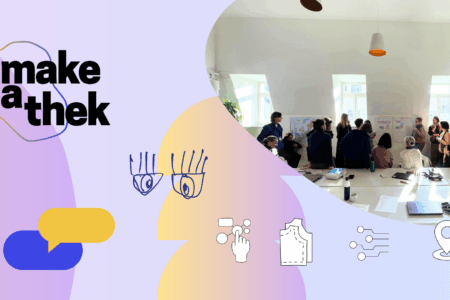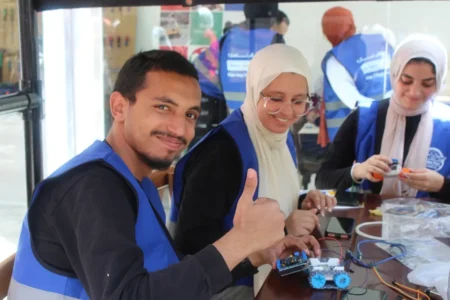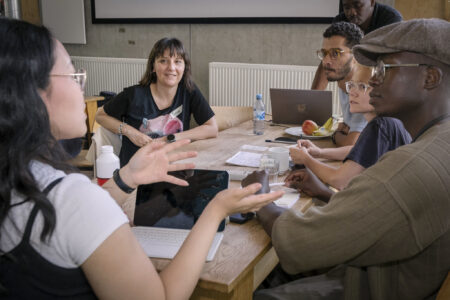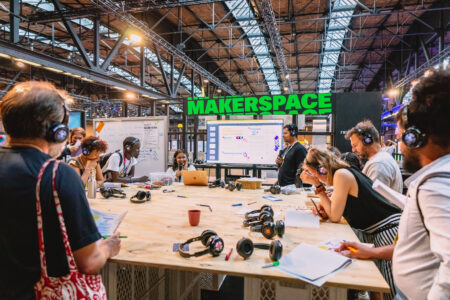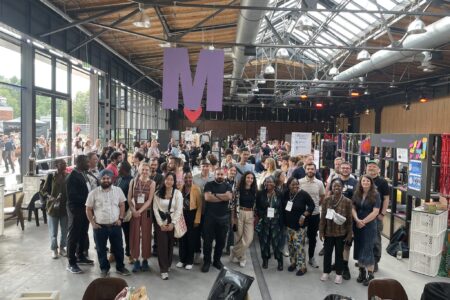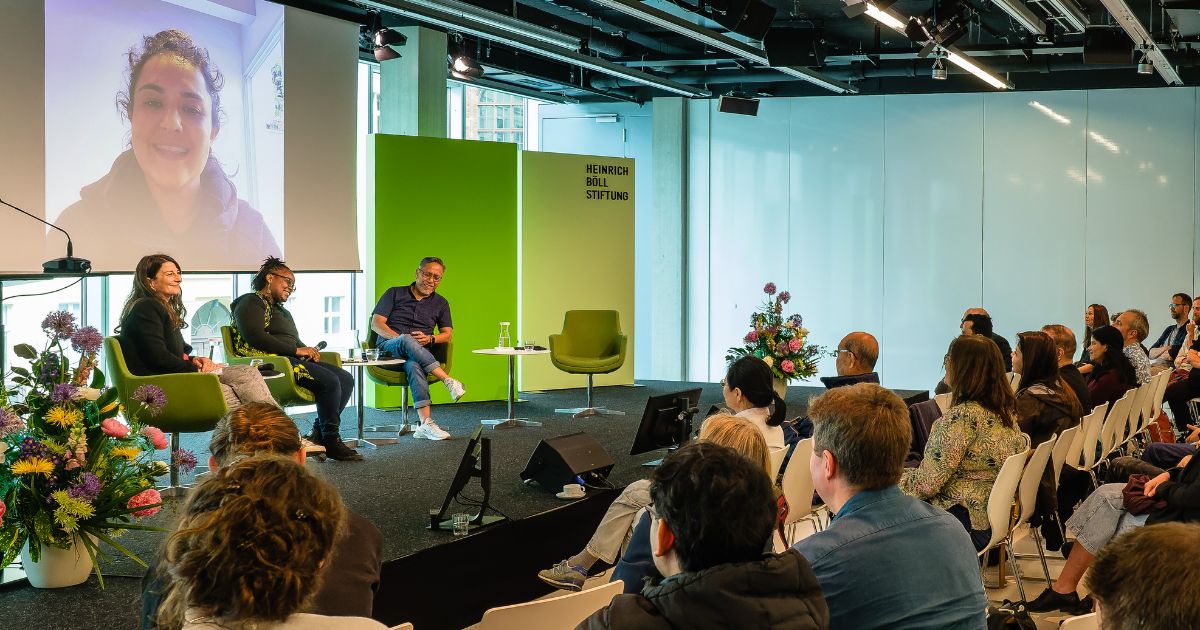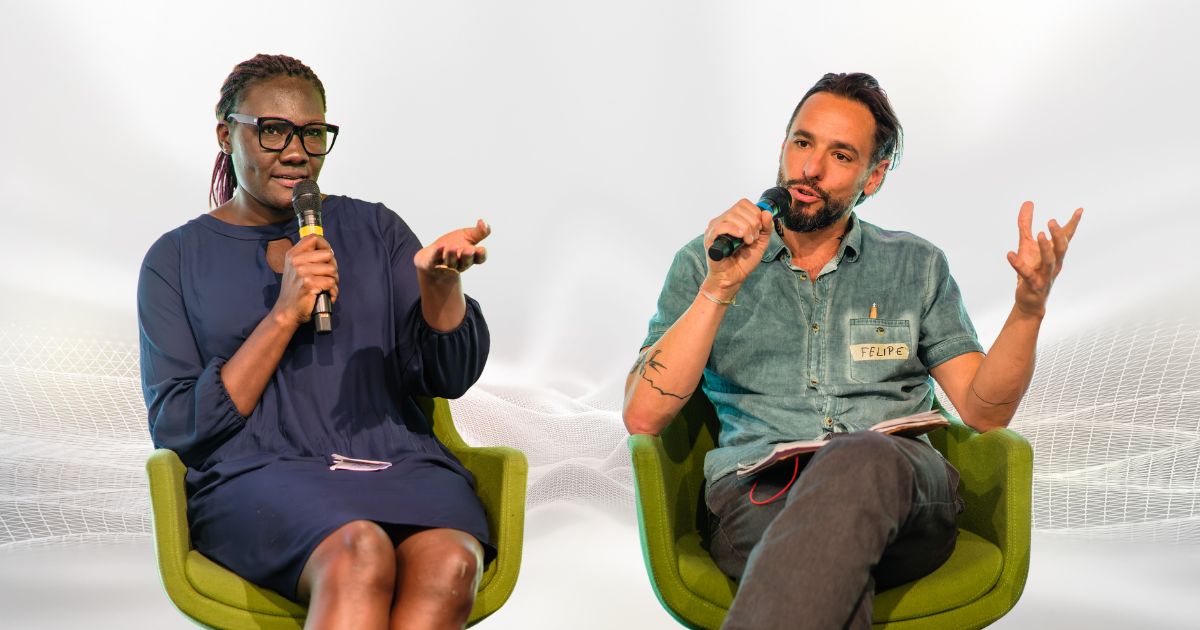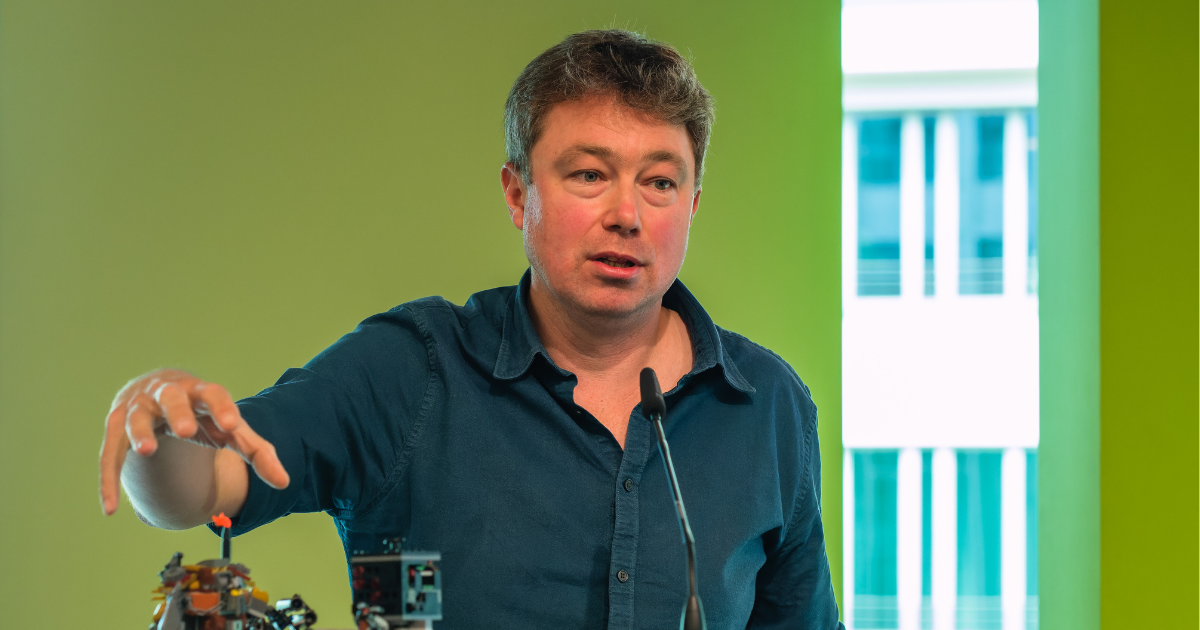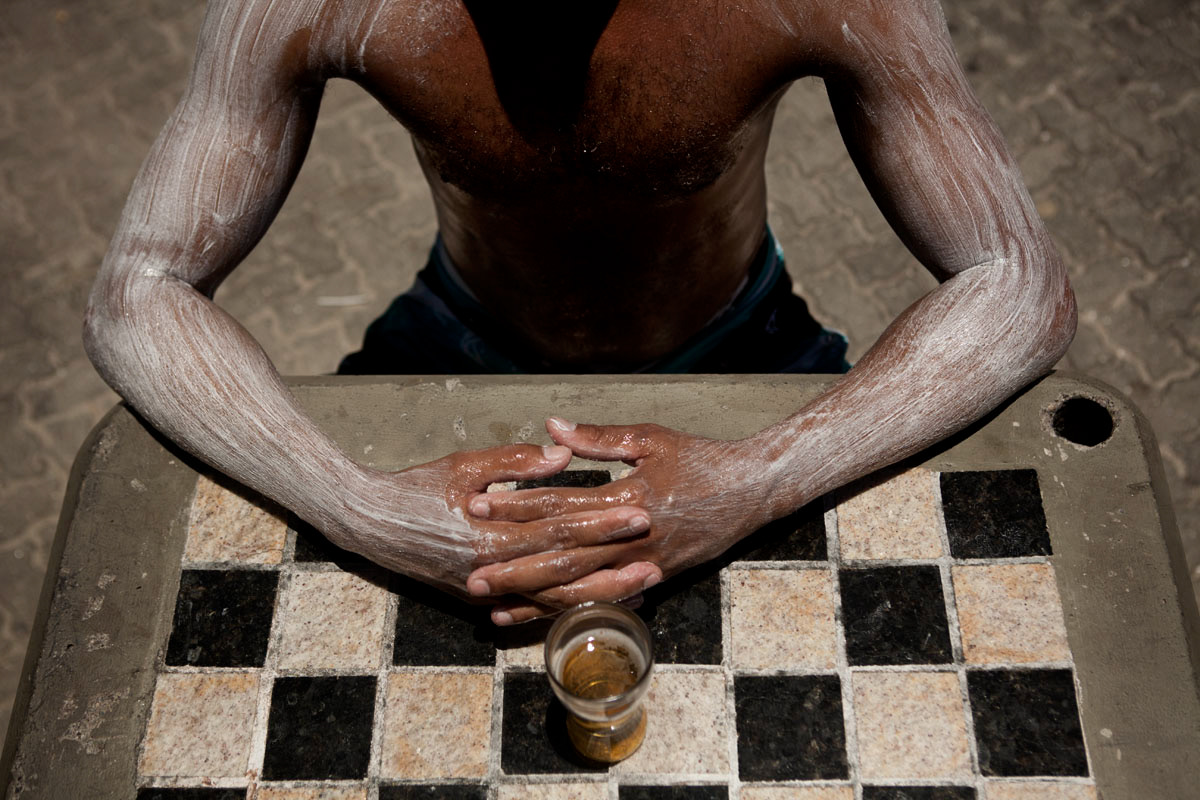Join our upcoming community conversation exploring circular design for heritage crafts. We’re bringing together community members and inspiring guests to explore how traditional craft practices can teach us about sustainable design today. Date & Time: Wednesday, July 9th at 2:00 PM CESTSign up here: https://forms.gle/arutPESxc2FBEaeB9 Our Speakers: Salih Mahmod – Former manager of Mosul SpaceLaura […]
April was a special month for makers in Egypt — and for some from around the globe, especially within our GIG community. It was the month of Maker Faire Cairo 2025!
We are looking forward to our 12th Global Innovation Gathering in Berlin. Through our long lasting partnership with re:publica GIG is inviting innovators from our network to Berlin. At re:publica GIG will be hosting the makerspace and related content like a repair café addressing global innovation and sustainability topics. In addition to GIGs presence at re:publica, […]
The Makerspace at re:publica 2025 is about getting hands-on, trying new things, and meeting people who love making stuff. Whether you’re into tech, crafts, or just curious about DIY projects, there’s plenty to check out. What’s Happening at the Makerspace? Workshops We’re excited to be back with a full three-day program of workshops, all hosted […]
We’re excited to invite you to a special Community Call, also the first for our new EU Horizon Project make-a-thek, that brings together makers, designers, and circular fashion experts from around the world. The meetup will offer a space to exchange and discuss approaches and ideas for sustainable and circular adaptive and inclusive design. Different […]
The Global Innovation Gathering (GIG) is pleased to announce the fourth DOTS Festival edition, scheduled for December 5th and December 10th, 2024. This event will continue to build on the success of previous editions, fostering collaboration and innovation among members from diverse backgrounds, which makes DOTS our Internal Impact Summit! Event Schedule December 5th, 2024: […]
Global Innovation Gathering: Unveiling Stories of Impact and Collective Transformation In 2015, GIG transformed Kudzai’s life, sparking her passion for the intersection of finance and technology. As an economic development specialist, she champions digital solutions in enterprise development and personal finance. Originating from Zimbabwe, the diverse grassroots initiatives within GIG captivated her. Upon joining, she […]
Linda Bonyo and Felipe Fonseca take on the trailblazing conversation of what the future of policy looks as makers in those positions of change. They touch upon the importance of fostering open and constructive policy dialogues to achieve effective governance. This would involve engaging with various stakeholders, including citizens, experts, and interest groups, to ensure […]
A catalyst. Often a catalyst is seen as a person or event that quickly causes change or action. The causation of a catalyst can vary, but most often or not, the result is usually positive and in the case of this talk we find that to be true. Andrew Lamb, in his talk titled “GIG […]
Racism is a pervasive and complex problem, affecting individuals and societies differently. How can we address this issue creatively and engagingly? How can we use games for empowerment, awareness, and education? These questions motivated a co-design lab in Brazil in a partnership between GIG and the University of Bristol and its collaborators. The co-design lab […]

